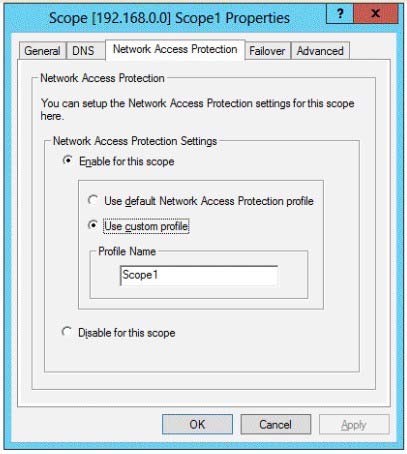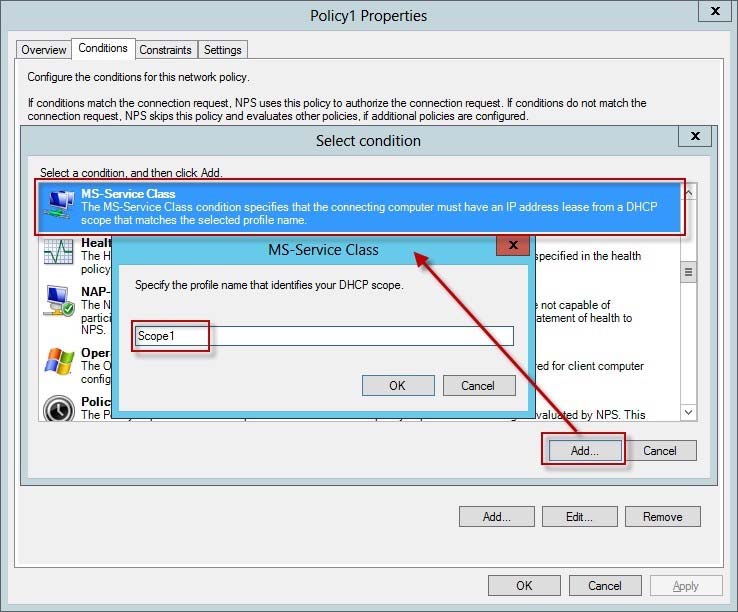

Your network contains an Active Directory domain named contoso.com. The domain contains a server named Server1. Server1 has the DHCP Server server role and the Network Policy Server role service installed.
Server1 contains three non-overlapping scopes named Scope1, Scope2, and Scope3. Server1 currently provides the same Network Access Protection (NAP) settings to the three scopes.
You modify the settings of Scope1 as shown in the exhibit. (Click the Exhibit button.)
You need to configure Server1 to provide unique NAP enforcement settings to the NAP non- compliant DHCP clients from Scope1.
What should you create?

Comments